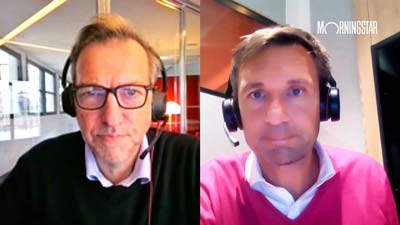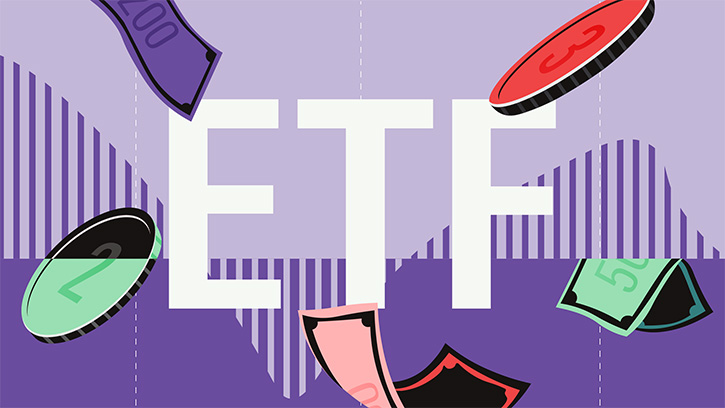TRANSCRIPT
Jeremy Glaser: For Morningstar, I'm Jeremy Glaser. BlackRock dropped its fees on its iShares Core products this morning. I'm here with Ben Johnson, he's our global director of ETF research, to see what this means. Ben, thanks for joining me.
Ben Johnson: Glad to be here, Jeremy.
Glaser: Let's just start a little bit about the news. What did BlackRock announce? How low are these fees going?
Johnson: The fees in some cases are the lowest in class. As you mentioned, BlackRock this morning announced that it was slashing fees on its iShares Core series. So this is a series of its ETF lineup, or a segment of its ETF lineup, that are designed with the intention of being core portfolio building blocks for a broad number of investors. In the case of, say, the iShares Core S&P 500 ETF, which as of last night was charging an annual fee of 7 basis points, or 0.07%, that fee has now been reduced to 0.04%. That edges out the fee that's charged by the premium share class of the Fidelity 500 Index fund, which itself was just recently reduced to 0.045%. It also edges out its closest ETF competitor, the Vanguard 500 ETF, which charges a fee of 5 basis points, or 0.05%.
The fee war continues, though the spoils of the incremental gains are becoming increasingly small from an investor's point of view. If you think of that in dollars-and-cents terms, and think of a $10,000 investment in each of those three funds that I've just mentioned, on a go-forward basis you'd be paying $4 a year to invest in IVV. You'd be paying $4.50 a year to invest in the Fidelity fund, and you'd be paying $5 a year in fees to invest in the Vanguard fund. You can save yourself $0.50, $1.00, depending on the case in point. I certainly wouldn't advise people switch between these, because oftentimes there would be tax implications. But what you see is that it is an unabashed good, an unabashed positive, unequivocally fantastic for investors that they can now invest in broad market-cap-weighted index funds and ETFs for fees that cost less in some cases than a good cup of coffee.
Glaser: This isn't a major change for a lot of investors. Why is there this push? What is BlackRock, what are these other firms that are racing to the bottom--what do they want to get out of this?
Johnson: While investors are winning in increments that can be measured in quarters, what you see is that the fund providers themselves stand to benefit disproportionately by way of trying to move market share, move flows in their direction, in both the index mutual fund as well as the ETF space. And it's important to understand that this is going on on both fronts. So again, as I mentioned before, we've recently seen Fidelity overhaul, rebrand, and reprice its own index fund lineup. In some cases it had a very short-lived reign at the top of the low-fee tables.
Again, as I mentioned in the case of S&P 500 exposure, BlackRock for its part has been and continues to, which was also part of this announcement, refresh and reprice its own index fund lineup. And you're seeing this going on elsewhere as well. All of this, I think, is intended to be able to become more competitive in the passive space with the likes of Vanguard. If you look at flows over the course of the past, certainly one year, over the course of the past two years, all of investors' incremental capital seems to be headed towards Valley Forge, Pennsylvania, and its competitors are not taking this lying down. They're fighting very aggressively to turn the tide in their direction.
Glaser: But at 4 basis points, is this kind of a Pyrrhic victory for BlackRock? Can they actually make money charging this small amount?
Johnson: That is a great question, and that is important to understand, is that it may seem at first blush that many of these fund sponsors are doing this out of the goodness of their hearts. Again, as I've just mentioned, a lot of it is a competitive response. And then, simultaneously, the other big-picture trend that we're seeing is the rise of the model-builders. Active managers, be they independent advisors, be they advisors that are seated or teams that are seated in wirehouses--the Merrills, the Morgan Stanleys, the UBSes of the world--or be they the ETF sponsors themselves, are stepping in and sort of putting Humpty Dumpty back together again for end investors, building models that use ETFs exclusively under the guise of solutions or outcome-oriented portfolios.
While the fees of the raw materials, the individual ETFs and index funds, are getting ever lower, what you're seeing is that these asset managers, these advisors, these various model-builders are stepping in to recapture what is effectively lost revenue by recombining all of these individual building blocks, and then charging a fee at the level of the overall portfolio or solution. You can squeeze one end of the balloon but that doesn't mean the air's going out. It's in all likelihood just going to the other end, and that's certainly something that we're seeing in this case.
Glaser: And not all the fees in their iShares line are necessarily bargain-basement, there are still some out there that have relatively high costs.
Johnson: No, so there exists within the BlackRock ETF lineup this awkward relationship between sibling funds. So take, for example, the iShares Emerging Markets ETF EEM, which charges an annual fee of 69 basis points, and then its sibling within the core lineup, [iShares Core MSCI Emerging Markets] IEMG, which now charges a fee that is a small fraction of that 69 basis points. The two track different indexes, albeit marginally different indexes, and increasingly what you see especially is the fee of the member of the Core, the younger sibling fund, goes lower. That yawning differential in fees between the two becomes awfully difficult to justify in my mind, given that they offer essentially identical exposure.
Glaser: So, always something to watch out for. Ben, as always, I really appreciate all your analysis.
Johnson: Happy to be here, Jeremy.
Glaser: For Morningstar, I'm Jeremy Glaser. Thanks for watching.




















